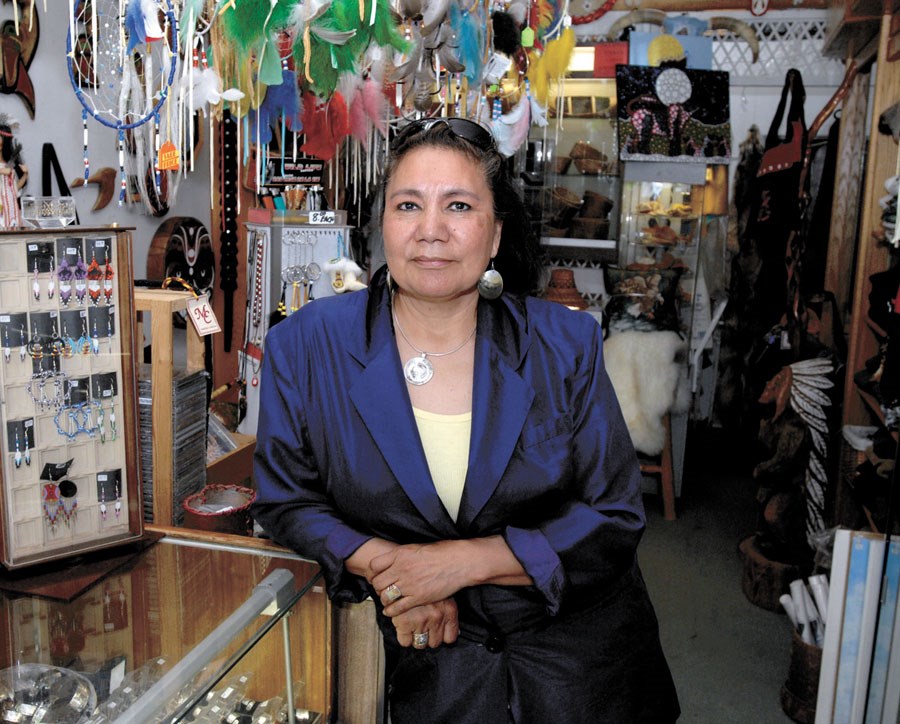Angelique Levac doesn't dismiss the allegations against her longtime friend and supporter but her experience with Bill Cosby did not include any misconduct on his part.
"I have nothing bad to say about Bill Cosby. He did me good. It changed my world around. It kind of helped me to carry on my birch bark biting, and that turned into a business out of all that," said the artist and business owner from Prince George.
Levac is one of the few practitioners of the ancient art of birch-bark biting. The artist uses tooth-bites into the touch tree skin to produce small marks that eventually form patterns. She sells it, along with other aboriginal creations, out of her downtown store Angelique's Native Arts.
The store has been open since 1994, two years after Levac appeared on the American television game show You Bet Your Life. She was flown to Philadelphia to tape the show because Cosby, a longtime native art enthusiast and collector, became aware of Levac's work through a Knowledge Network documentary she did with fellow artist Angelique Merasty, her mentor.
He personally encountered her art when he was in Flin Flon, Manitoba where Levac grew up (she is a Cree from Midnight Lake who moved to Lheidli T'enneh First Nation territory in 1983 and she has been here ever since).
"He actually purchased a lot of my art even before I met him," she said.
"He hand-picked me himself to go on the show because you had to do something different to get onto the show, do something unique, and my kind of art was unique to him."
She and her partner (each episode pitted pairs of contestants against one another to answer trivia questions worth progressively more money) won more than $12,000 that day, which gave her an unprecedented financial kick to get her entrepreneurship underway.
She confessed that she felt odd about the win - that she noticed some details that suggested to her the fix was in, in favour of her and her partner that day, but nothing that could be proved later, and it did not lead to anything untoward between her and Cosby.
He stayed in touch and reconnected with her in person a few years later when he came to Prince George for a comedy show he performed at CN Centre.
The attention she gained from the TV show, the prize money, and the endorsement boost Cosby provided by purchasing her work was part of the basis on which she established her store.
It is difficult to run a small business and difficult to be an art-based retail entrepreneur but she has thrived. She even won a BC Achievement Foundation business award for her venture.
Cosby may have been a key early supporter, but she built her success all on her own. Part of her motivation was a racist flare she once was witness to.
"As a child, maybe 15, maybe younger, I heard this white person say 'You know, aboriginal people start things, but they don't last. It always closes.' That stuck with me. I decided then I would make last whatever I started. I was more determined to make it. I started it all on my own, no grants, and my birch bark biting got me into art school, where I learned all about kinds of wood, silver, how to carve, how to paint, how to think about being a business person. Randy Adams and Robert Sebastian were very good teachers."
Cosby was good too, to her at least.
She doesn't downplay the severity of the allegations against the famed comedian.
She does make it clear, though, that he never presented anything but kind and professional behaviour towards her over the years.
"I feel bad that this happened (the realities of the allegations)," she said. "He made a difference in my life, with my artwork."



.jpg;w=120;h=80;mode=crop)